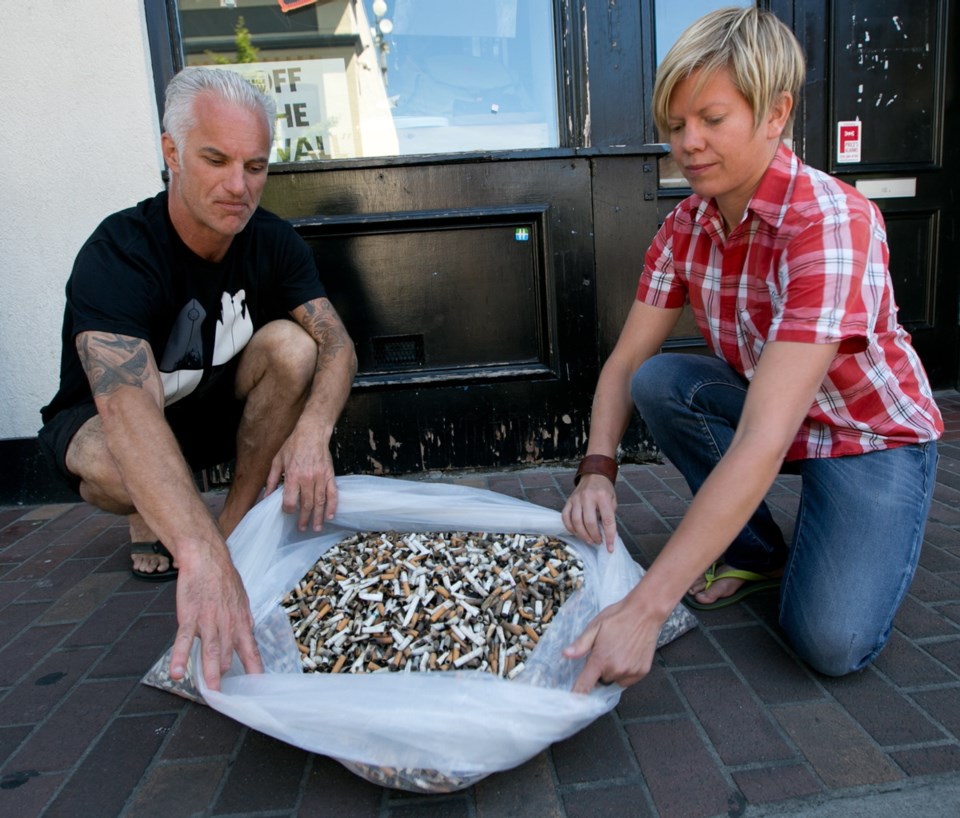A small program to clean up downtown Victoria’s streets has mushroomed in just a month.
About 25,000 discarded cigarette butts were gathered in the city over the past month, thanks to the expansion of a collection program.
A lone disposal container for butts was installed on Broad Street outside Coastline Surf Shop, and now 19 more, worth about $100 each, have been placed around downtown. It’s part of a pilot program put together by the Downtown Victoria Business Association, the City of Victoria and the Vancouver Island chapter of the Surfrider Foundation, an environmental group.
Another eight canisters have been installed at Ogden Point and Fisherman’s Wharf with the support of the Greater Victoria Harbour Authority.
The butts will be processed by TerraCycle in partnership with Progressive Waste Solutions, and converted into such products as plastic pellets for industrial use. The leftover paper and tobacco will be composted, and the ashes will become fertilizer, said Tess Harris of Progressive Waste Solutions. The recycled products will cover the program’s costs.
Coastline Surf Shop owner Mike Redpath said the cleanup effort makes sense for businesses because a storefront covered in cigarette butts is uninviting for customers.
“It’s a very real and easy way to keep downtown tidier,” he said.
Victoria’s program is the second in a Canadian city. About 17 million butts have been recycled in Vancouver since 2012.
Along with messing up streets, butts account for an estimated one-third of waste found during local beach cleanups. They also release toxins when they get wet, which pose a threat to marine life.



